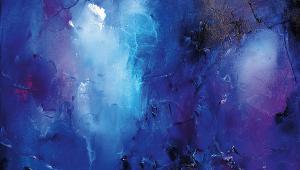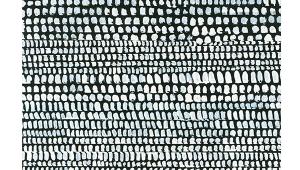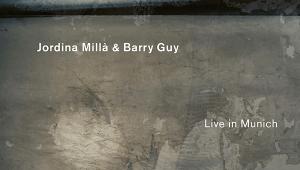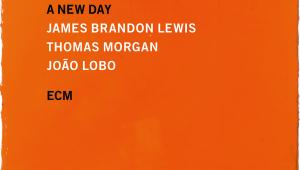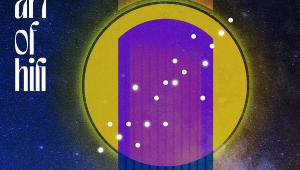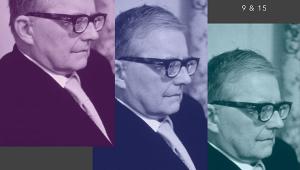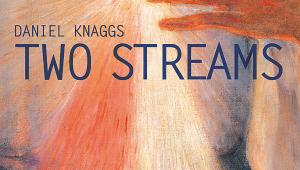Hi-Res Downloads, September 2019

 Bruce Levingston
Bruce Levingston
American Citizen (192kHz/24-bit; DSD64/128)
www.nativedsd.com; Sono Luminus DSL92228
Based on a concert pianist Bruce Levingston performed at the opening of the Civil Rights Museum in Mississippi, American Citizen at first seems like a strange mix – selections from current American composers and muzurkas by Chopin – but it definitely works. It opens with the piece from which it takes its title, Nolan Gasser's 'American Citizen', which is itself inspired by a 1930s painting of John Wesley Washington, born a slave some 90 years earlier. It sets the tone for the whole set, the centrepiece of which is C Price Walden's reflective 'Sacred Spaces'. As you might have realised from the context, the theme of the whole album is citizenship, the struggle to achieve it and the sense of belonging that results. Those threads are served beautifully by Levingston's masterful playing, and realised by a gloriously open recording, especially in the DSD128 guise auditioned and tested here. AE
Sound Quality: 90%
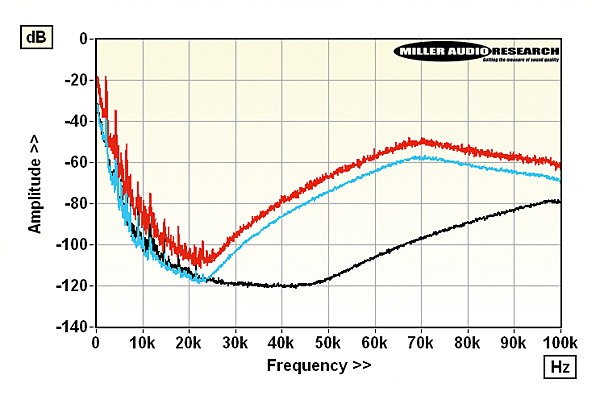
Lab Report
Recorded in 352.8kHz DXD on Merging Technologies hardware, this capture of a Steinway piano was subsequently truncated and upsampled to DSD64 [red, peak; cyan, RMS] and to DSD128 [black]. Both offer sufficient bandwidth. PM
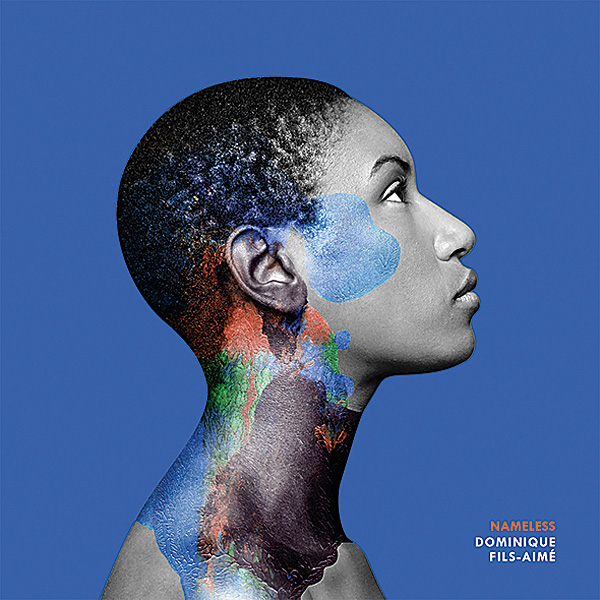
Dominique Fils-Aimé
Nameless (88.2kHz/24-bit, FLAC; MQA)
www.highresaudio.com; Ensoul Records (no catalogue number)
In common with Bruce Levingston's American Citizen, also reviewed this month, this second album from Montreal singer-songwriter Fils-Aimé takes its lead from the struggle for civil rights in America, and in particular from a Maya Angelou poem, 'Still I Rise'. So it's no surprise that it opens with the singer's take on Abel Meeropol's bleak 'Strange Fruit,' made famous by Billie Holiday and much performed by many others. In Fils-Aimé's hands it becomes spare and haunting, backed with multilayered vocals, and setting the tone for the minimal arrangements on the rest of the album, with a tight, sympathetic band behind the voice, notably on the title track. It's a captivating sound, treated to a powerful, wide-range recording to keep the listener riveted – and it ends with a similarly enthralling all-vocal reading of the classic 'Feeling Good'. AE
Sound Quality: 85%
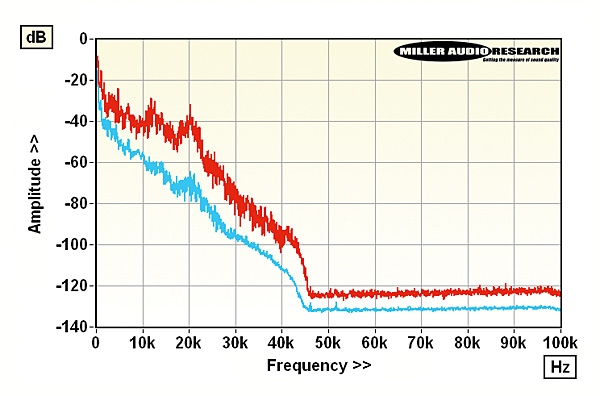
Lab Report
Recorded at 88.2kHz, and recorded right up to the 0dBFs endstops, there is some evidence of clipped samples with the slaps/claps of percussion. Otherwise this looks like the real deal, not an upsampled CD file! Also available in MQA. PM
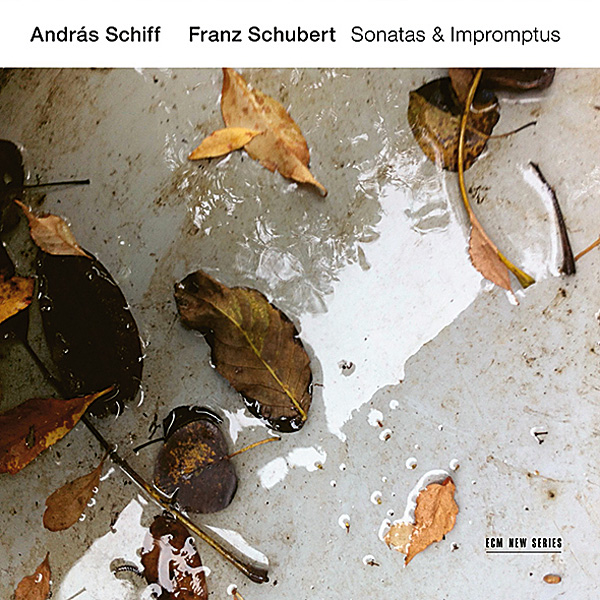
András Schiff
Schubert Sonatas & Impromptus (96kHz/24-bit, FLAC)
www.highresaudio.com; ECM 4817252
András Schiff's third Schubert programme for ECM comprises the Piano Sonatas in C-minor, D958, and in A, D959, together with the three Klavierstücke D946 and four Impromptus D899. Recorded at the Bonn Beethoven-Haus, Schiff plays his own c.1820 Franz Brodmann fortepiano which he finds ideally suited to the music, 'quintessentially Viennese in its timbre and tender mellowness'. (ECM's booklet has a technical specification and full description.) The first shock is hearing how pristine it sounds – even from top to bottom and certainly ideally suited to the shorter, popular pieces. I also found the slow movement of D959 revelatory, especially in those wildly disturbed passages, so often troublesome for the listener with a modern grand. The Brodmann is quite closely balanced in Stephan Schellmann's recording but engagingly clean. CB
Sound Quality: 85%
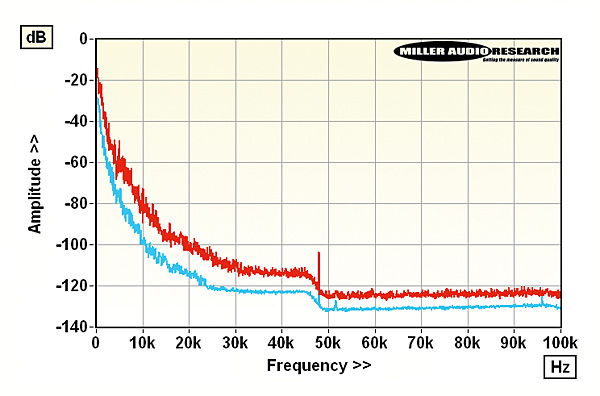
Lab Report
The fortepiano typically has a slightly more extended harmonic (frequency) range than a grand, and so it is here, more than adequately captured by the bandwidth of this 96kHz recording. One spurious sampling tone, at 48kHz. PM

Doe Paoro
Soft Power (96kHz/24-bit, FLAC; MQA)*
www.highresaudio.com; Anti/Epitaph 2758320
OK, so this isn't an album by Doe Paoro – the singer's real name is Sonia Kreitzer – and if the cover picture makes you think doe-eyed John Lewis Christmas ad vocals, you're going to be wide of the mark. For her third album she's collaborated with producer Jimmy Hogarth, who has worked with the likes of Duffy and Amy Winehouse – and boy does it show! There's some big voice stuff going on here, along with a mixture of rock, blues, more soulful ballads and 'wall of sound' production – notably in 'Fading Into Black'. There's no shortage of brass when required, deployed liberally to give some of the tracks a very rich sound. Paoro has co-authored all of the songs here, but with different writers for each one, so this sounds more compilation than of a piece. Despite a so-so sound, verging on the murky from time to time, this is still a rewarding listen, if not revelatory. AE
Sound Quality: 75%
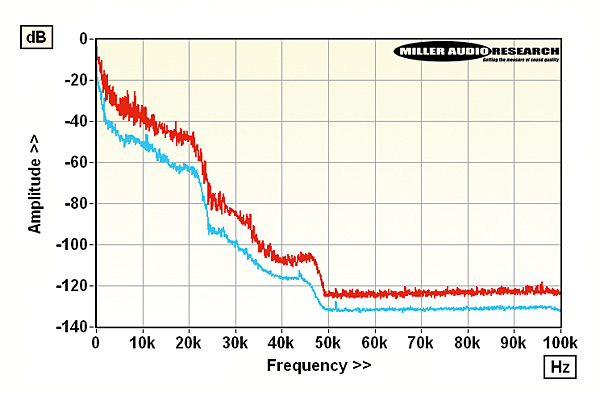
Lab Report
Also available with MQA encoding, the plain vanilla 96kHz FLAC file has problems of its own – the vocal/percussion mix having likely spent time at 48kHz during recording or mixing. Evidence of clipped samples too. PM
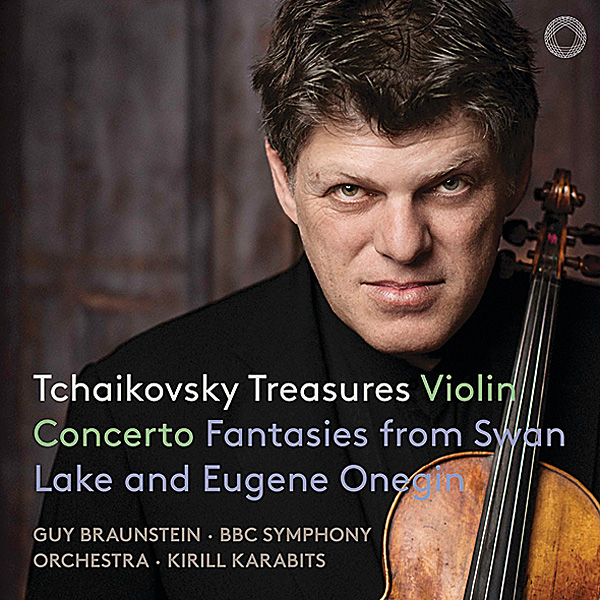
Guy Braunstein, BBC SO/Kirill Karabits
Tchaikovsky Treasures (96kHz/24-bit, FLAC; DSD64)
www.highresaudio.com; Pentatone PTC5186747
Guy Braunstein is a former Berliner Philharmoniker principal (2000-13) and his 'treasures' here comprise the three Tchaikovsky works for violin and orchestra – the Concerto, Valse Scherzo and Sérénade Mélancolique – together with his own three short transcriptions from Swan Lake and Eugene Onegin. He's following in the tradition of Auer here, he says, which few of his contemporaries now find time for. The recordings were made at Walthamstow Assembly Hall last June. Braunstein gets terrific support from Karabits and the BBC SO – real tension in the Violin Concerto's transition (ii)–(iii) for example. But while there's no doubting the soloist's technique, of course, his constant preoccupation with tonal changes, little dynamic and timing alterations, seemed to me to draw attention away from the music itself. CB
Sound Quality: 75%
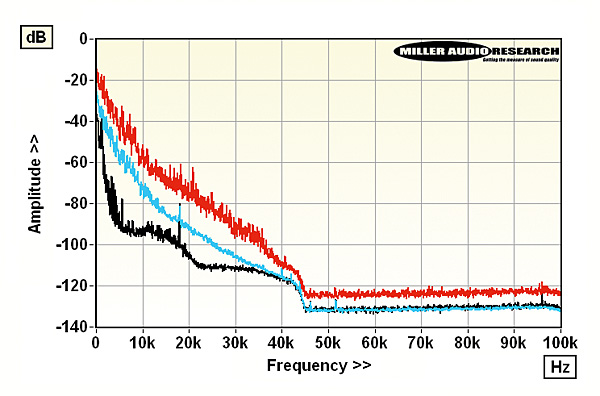
Lab Report
Pentatone also offers this as an SACD and DSD file, but the original recording looks to be at 96kHz. The solo violin stretches out to 30kHz here – good dynamic range but some low-level noise and a spurious tone at 28kHz [black spectrum]. PM


